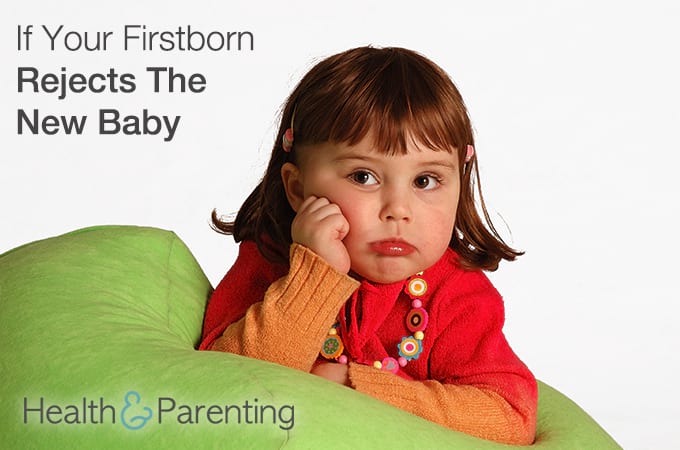For most parents, one reason for having another baby is to give their firstborn a sibling. You imagine them playing together as kids, sharing secrets as teenagers and leaning on each other as they grow old. Perhaps you use your own sibling relationships as inspiration, imagining the same for your child.
Unfortunately, not all kids take to being an older sibling straight away. Suddenly having to share your parents, your love and the attention that was once 100% focused on you can come as quite a shock. Don’t be disheartened if your firstborn isn’t immediately smitten with the new baby, it will come with time. In the meantime, try the following to encourage them to bond:
- One-on-one time
It’s important to think about how the new baby’s arrival is making your firstborn feel. Imagine if your partner suddenly invited a new woman to live in your home, he spent all his time with her and expected you to be thankful that she was there. You’d feel pretty left out, wouldn’t you? Maybe even a little jealous? Well, your firstborn is feeling all of that and probably doesn’t have the skills to voice those complex feelings just yet. What your firstborn really misses is you. Before the new baby came along, your first child enjoyed plenty of one-on-one time with you, but now your energy is focused on the new baby.
Try to carve out some one-on-one time to help your firstborn feel appreciated again. It won’t be easy when you’re juggling the needs of a newborn, but you should be able to snatch at least some time each day to focus on your oldest kid. During nap times, focus your efforts on your firstborn. Let him choose what you do and just follow his lead.
- Perfect the multitask
Having a child is a great opportunity to learn to multitask, having two children leaves you with no other options. Babies spend a lot of time feeding, sleeping and being cuddled. This will take up a lot of your day, but it doesn’t mean you can’t do anything else. Investing in a sling or wrap will leave your hands free to play games with your firstborn. The baby will sleep happily in the sling, safely tucked into your body, and your firstborn will get to enjoy having your attention. You’ll get to enjoy the superpower of taking care of two kids at once and totally nailing it, so everybody wins.
- Accept the difficult emotions
It’s not easy to hear your firstborn say unkind or hateful things about the new baby, but it is important not to dismiss those feelings. In fact, you need to actively accept these difficult emotions of your older child in order to help him process them. You can gently agree that sometimes having a younger sibling sucks. They do spend a lot of time feeding, they do make you late for school with their badly timed explosive poops and they do cry a lot late at night. Those things suck and there’s nothing wrong with saying so. Help your child to understand his emotions by talking openly about his feelings.
- Get the older child involved
No matter how old your firstborn is, you can get him involved in helping out with the new baby. A young toddler can pass diapers and wipes when necessary and an older child can help with cuddles and reassurance when the baby cries. As the mom to a new baby, you spend a lot of time caring for the baby, getting your firstborn involved can help show him that he has an important part to play as well. Make sure you thank him each and every time he helps out and make sure the baby thanks him too. Keep telling him what a great big brother he is and how lucky the baby is to have such a helpful brother around to look after him.
- Be positive
Sometimes, without even realizing it, parents can be part of the problem when a firstborn rejects the new baby. Think carefully about how you talk about being a big brother. Do you make it sound like a positive or negative thing for your firstborn? Many parents unwittingly make being an older sibling seem rubbish simply by the things they say. “You’re too old for that.” “You should know better.” “He’s just a baby!”. Suddenly, being a big brother doesn’t seem so fun, does it? Be mindful about how you talk about the new baby and what it means to be a big brother. Make sure the emphasis is on fun and love, not responsibility and getting told off.
It might take a little while, but if you adopt the techniques above you should notice a change in your firstborn’s attitude. Not only will this improve your relationship with him, it will also help to create a bond between your children.
How did you handle this situation and did it work?
Written by Fiona (@Fiona_Peacock), mother, writer and lover of all things baby related.
This information is not intended to replace the advice of a trained medical doctor. Health & Parenting Ltd disclaims any liability for the decisions you make based on this information, which is provided to you on a general information basis only and not as a substitute for personalized medical advice. All contents copyright © Health & Parenting Ltd 2016. All rights reserved.










